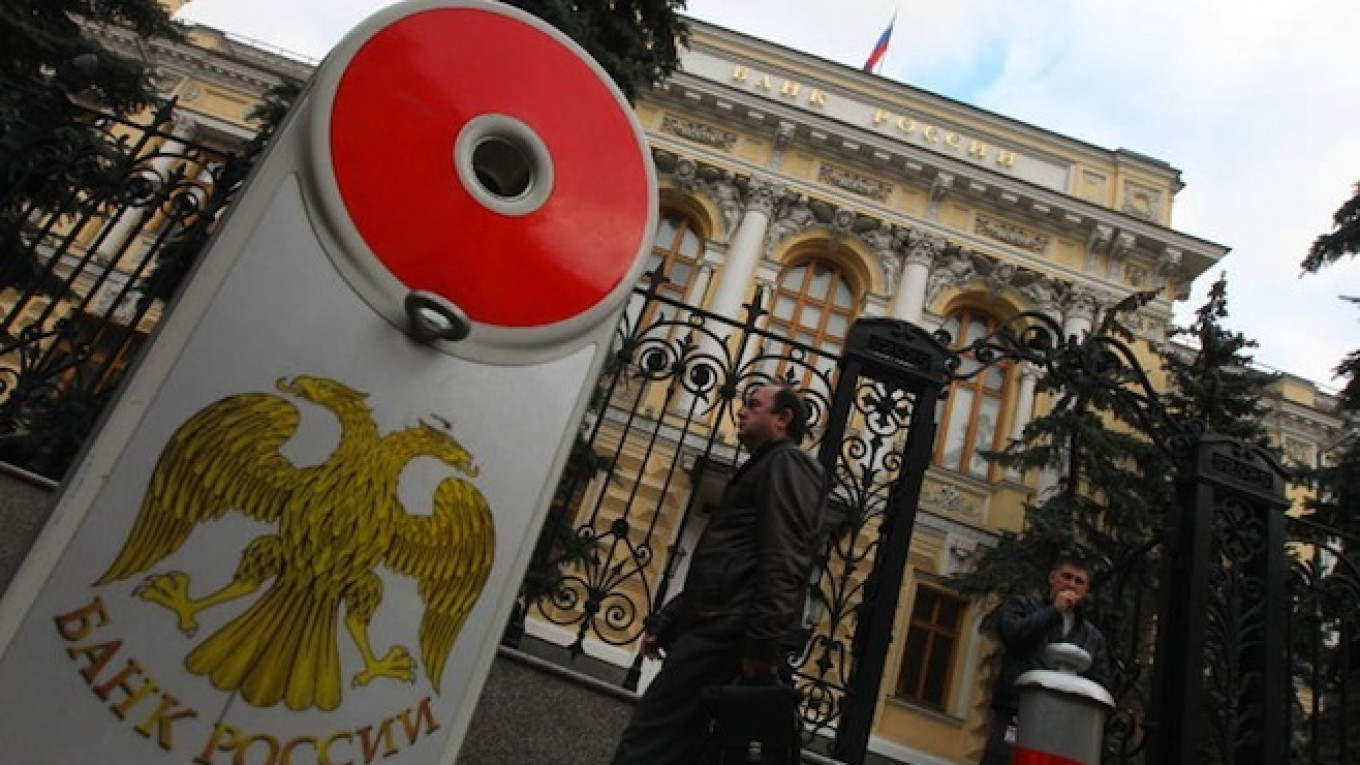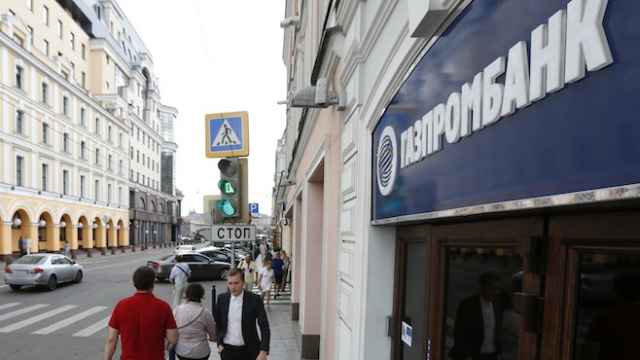Russia's Central Bank offered on Wednesday to help leading exporters refinance foreign debts next year, expected to be one of the toughest of President Vladimir Putin's 15-year rule for the economy due to Western sanctions and a plunge in oil prices.
The bank said it would lend dollars and euros to major companies that were willing to put up their foreign borrowings as collateral.
The move means the state will in effect take on credit risk for the companies, whose foreign debt obligations have shot up in ruble terms because of the currency's sharp slide this year.
Even before the move, Standard & Poor's ratings agency put Russia's sovereign credit outlook on "creditwatch negative," meaning it could be downgraded to junk as soon as January due to a "rapid deterioration of Russia's monetary flexibility."
S&P, Moody's and Fitch all now rate Russia one notch above junk. The Finance Ministry said it was holding talks with ratings agencies to explain the situation in the economy.
The authorities have taken several steps in recent weeks to arrest the ruble's slide and avoid a spike in inflation after years of stability, developments that could threaten Putin's popularity.
They include a sharp interest rate hike, curbs on grain exports and informal capital controls.
While Russia's sovereign foreign debts are minimal, state and private companies and banks have accumulated $600 billion in foreign debts, of which around $100 billion are due next year.
The ability to repay the loans or roll them over has been severely reduced this year by Western sanctions, imposed on Russia for its actions in Ukraine, which effectively shut its companies and banks out of Western debt markets.
But the economic crisis in Russia's heavily oil-dependent economy goes wider. Moody's ratings agency said on Tuesday that it expected Russia's GDP to contract by 5.5 percent in 2015 and 3 percent in 2016, under the effect of the plunge in oil prices and the ruble's slide.
"These developments will likely lead to a severe deterioration in the operating environment for Russian corporates, namely higher inflation, unemployment and debt-servicing costs as well as lower domestic demand, resulting in a deeper and more protracted decline in domestic economic activity than previously anticipated," Moody's said.
Russia has around $414 billion in foreign exchange and gold reserves, down from around $510 billion at the start of the year, after spending heavily to prop up the ruble as the price of oil, Russia's main export earner, almost halved from this year's peaks in June.
The ruble, which dipped last week to 80 to the dollar, has since recovered to around 55, still about 40 percent down since the start of the year.
The Central Bank said Wednesday's move was aimed at "helping to refinance foreign credits by Russian exporters in foreign currencies maturing in the near future at a time of their restricted abilities to access international capital markets.”
It said these lending operations would also help to bring the ruble exchange rate into line with fundamentals and reduce volatility. Loans are to be provided for up to one year at auctions, at a minimal rate of Libor plus 0.75 percent.
Oleg Kuzmin, an economist at Renaissance Capital, said the amount allocated was small enough not to undermine the Central Bank's ability to support the ruble.
State-controlled VTB Bank said it would use the facility if needed but that "currently, there is no such need.”
The Central Bank and the Finance Ministry have also promised to help banks with extra ruble liquidity and regulatory measures.
The lower house of parliament rushed to pass a draft law on Friday that will give the banking sector a capital boost of up to 1 trillion roubles ($18 billion).
Dmitry Polevoy, chief economist for Russia at ING, said the Central Bank had taken too long to act.
"The problems with forex funding emerged in early September and have only been getting worse since then. The Central Bank of Russia has mostly been putting out fires rather than preventing them,” Polevoy said.
A Message from The Moscow Times:
Dear readers,
We are facing unprecedented challenges. Russia's Prosecutor General's Office has designated The Moscow Times as an "undesirable" organization, criminalizing our work and putting our staff at risk of prosecution. This follows our earlier unjust labeling as a "foreign agent."
These actions are direct attempts to silence independent journalism in Russia. The authorities claim our work "discredits the decisions of the Russian leadership." We see things differently: we strive to provide accurate, unbiased reporting on Russia.
We, the journalists of The Moscow Times, refuse to be silenced. But to continue our work, we need your help.
Your support, no matter how small, makes a world of difference. If you can, please support us monthly starting from just $2. It's quick to set up, and every contribution makes a significant impact.
By supporting The Moscow Times, you're defending open, independent journalism in the face of repression. Thank you for standing with us.
Remind me later.






